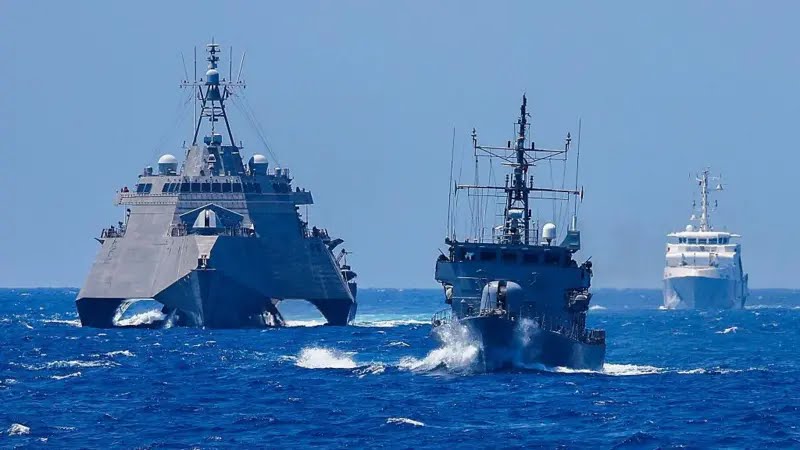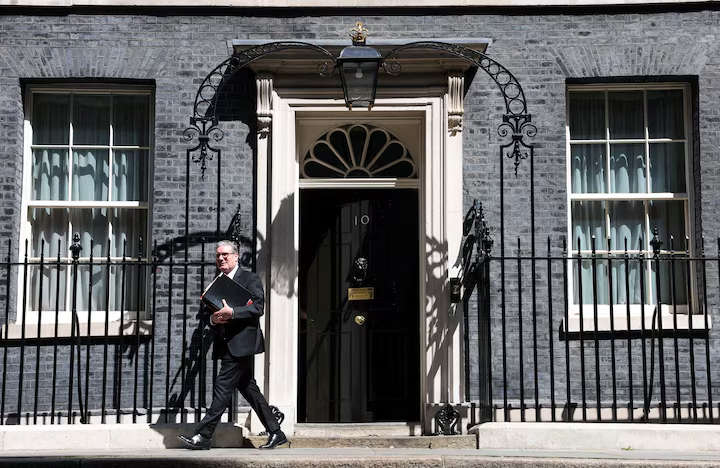Top defense officials from the United States and China met in Singapore for the annual Shangri-La Dialogue, where rising strategic rivalry between the two superpowers dominated discussions. The summit, which brings together defense ministers and military leaders from across the Asia-Pacific region, was marked by calls for stability and mutual restraint amid growing military assertiveness and diplomatic friction.
US Defense Secretary Lloyd Austin and Chinese Defense Minister Dong Jun delivered speeches highlighting their respective visions for regional security, underscoring the widening gap between Washington and Beijing over Taiwan, the South China Sea, and broader Indo-Pacific influence.
Secretary Austin emphasized the need for freedom of navigation, rules-based order, and the importance of alliances in maintaining stability in the region. “We are committed to peace, but we will not flinch in defending our interests,” he said, warning against unilateral actions that alter the status quo by force.
In contrast, Minister Dong accused the United States of pursuing “containment and suppression” of China and warned that Chinese sovereignty is “non-negotiable.” He reiterated Beijing’s claim over Taiwan and warned against foreign interference in what China views as a domestic matter. “If anyone dares to separate Taiwan from China, the Chinese military will take all necessary actions to protect national unity,” Dong declared.
While the two officials did not hold a formal bilateral meeting, they exchanged brief remarks on the sidelines of the summit, with both sides acknowledging the need to manage tensions and improve communication to avoid conflict. A senior US official described the interaction as “professional and constructive,” though no breakthrough was expected.
The Shangri-La Dialogue comes at a time of heightened tension between the US and China, marked by a surge in military activities in the Taiwan Strait, growing naval presence in the South China Sea, and increasing alignment between the US and regional allies such as Japan, the Philippines, and Australia.
China has recently stepped up its air and naval maneuvers near Taiwan, prompting warnings from Washington and allies. The US, meanwhile, continues to conduct freedom of navigation operations and joint military exercises with regional partners, moves that Beijing decries as provocative.
Delegates from Southeast Asian nations expressed concern that the US-China rivalry could destabilize the region. Singapore’s Prime Minister Lawrence Wong, in his opening address, urged both powers to exercise restraint and foster dialogue. “Asia does not want to be forced to choose sides,” he said. “We want a stable, rules-based order where countries big and small can prosper.”
Other speakers, including defense chiefs from Japan, India, and Indonesia, echoed similar sentiments, emphasizing the need for transparency, crisis prevention mechanisms, and multilateral security frameworks to avoid miscalculations.
One area of rare convergence was the issue of military-to-military communication. The US has repeatedly urged China to restore direct channels between senior commanders to prevent accidents or unintended escalation. Chinese officials acknowledged the importance of communication but tied further engagement to US actions, particularly regarding arms sales to Taiwan and surveillance near Chinese coasts.
In the backdrop of the summit, think tanks and policy experts hosted panels on emerging technologies, cybersecurity, and nuclear deterrence, all of which are shaping the new era of strategic competition. Analysts noted that while the rhetoric from both sides remains confrontational, the fact that their representatives are still engaging at such forums is a modest sign of hope.
The Shangri-La Dialogue, organized by the International Institute for Strategic Studies (IISS), has long served as a barometer for geopolitical shifts in Asia. This year’s event underscored how the US-China rivalry continues to define the regional security agenda — a competition that shows no signs of easing.
As the summit concluded, the core message from multiple delegations was clear: while great power competition may be inevitable, conflict is not. Dialogue, transparency, and adherence to international norms are the only viable paths to peace in an increasingly contested Indo-Pacific.
Source: BBC



